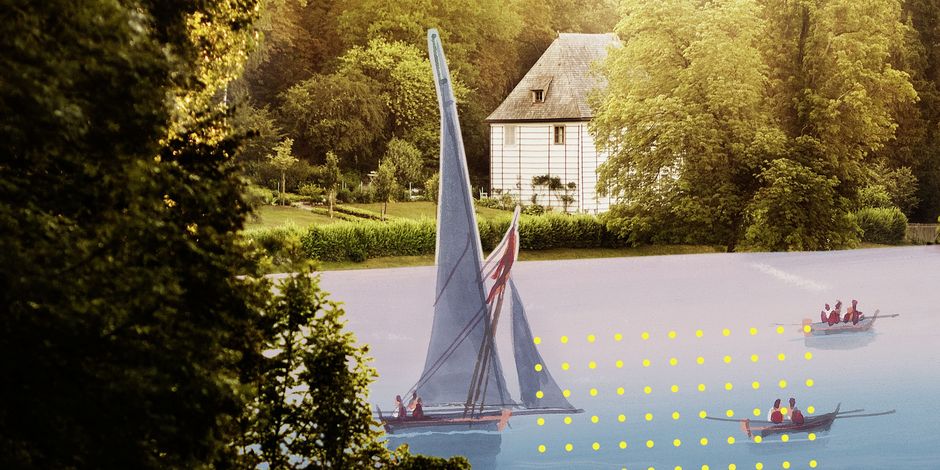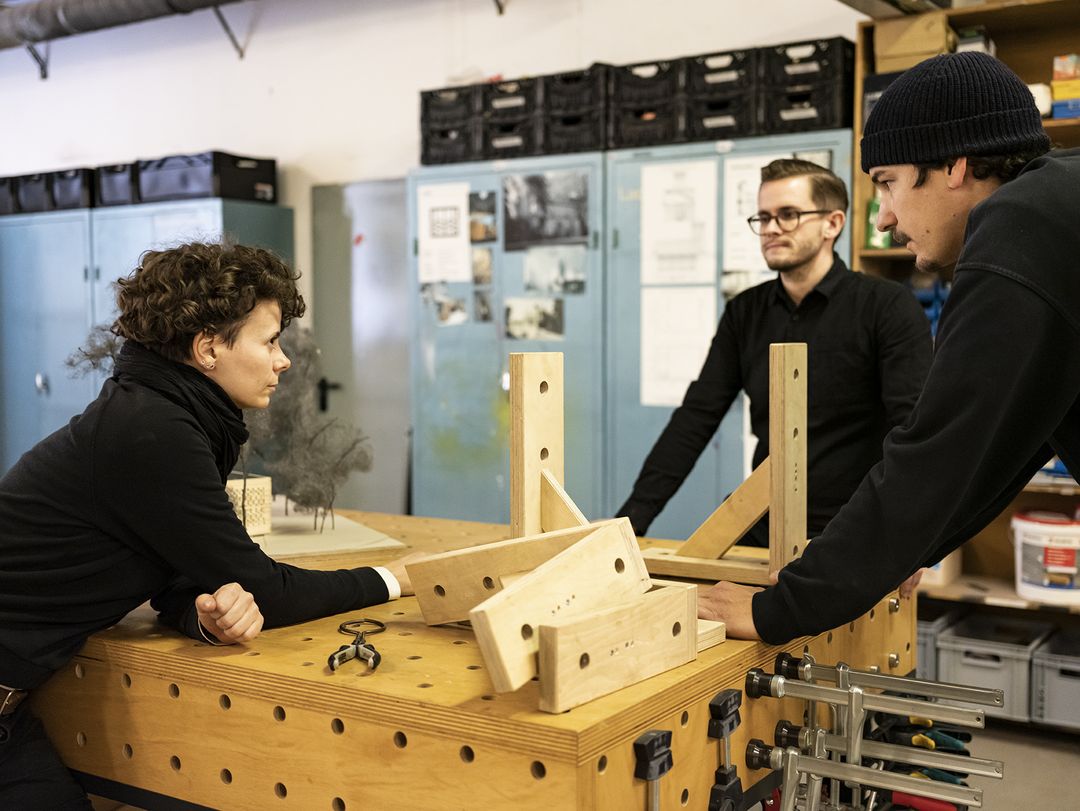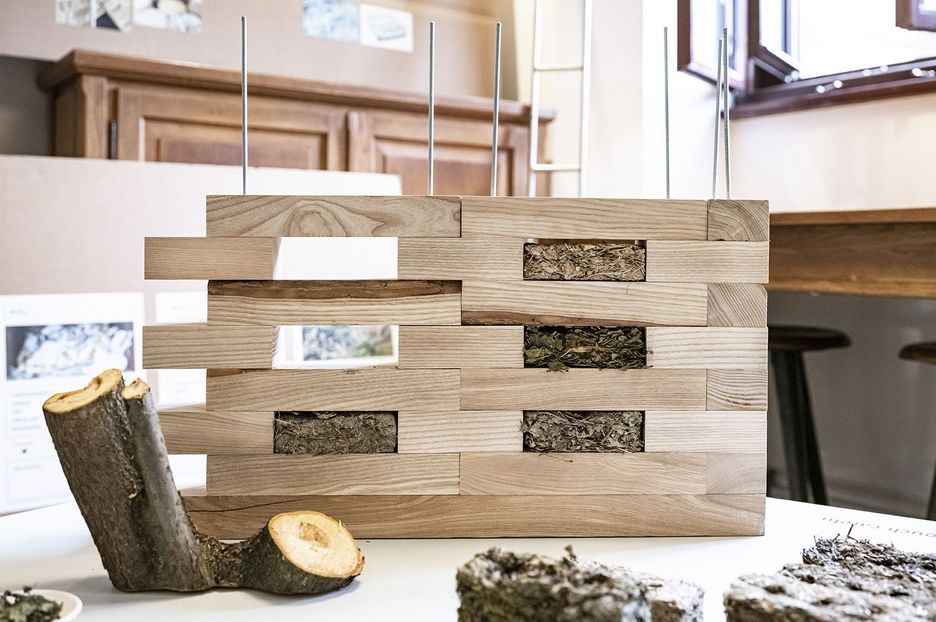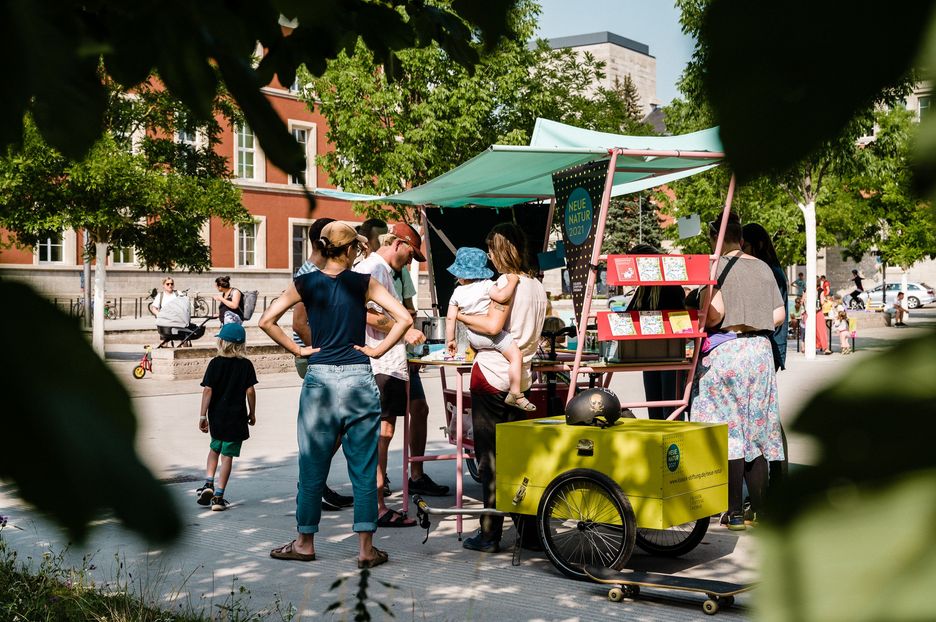Projects of the Klassik Stiftung Weimar are funded by the European Regional Development Fund (ERDF) and the Free State of Thuringia, represented by the State Chancellery of Thuringia, Department of Culture and the Arts.


The centrepiece of the 2021 theme-based programme “New Nature” is the “Green Lab” in the Park on the Ilm. The innovative temporary pavilion located near the ruins of the Tempelherrenhaus serves as an action platform for workshops and discussions, a meeting point for tours of the park, and a workshop venue for pre-schoolers and school classes. It also is a presentation venue and a place to relax for all park visitors. In the evenings, discussion events organised with various cooperation partners revive the historical concept of the “salon”.
The architectural plans for the Green Lab were designed by the Weimar-based Studio Boom. The building itself is a medium for presentation; blowdowns and natural matter collected from the Park on the Ilm will be used as construction material and visible evidence of the “damage” caused by climate change.
The Green Lab will be supplemented by the “Mobile Green Lab”. Every Friday and Sunday, cargo bicycles with specially developed mounts will head out in various directions, inviting passers-by in Weimar’s city districts and parks to view nature-themed, pop-up events.
The Green Lab was designed by Studio Boom, whose team includes the Weimar architects Hannes Schmidt and Julius Tischler and the product designer Susann Paduch. The building plans features a spacious terrace whose dimensions mark the foundation walls of the former Tempelherrenhaus upon which a pavilion will be installed. The structure itself will be a presentation medium, incorporating materials which originate from the natural waste products of the park. These materials serve as visible evidence of the “damage” caused by climate change, e.g. trees and limbs which had to be cut down due to extreme drought and parasitic infestation. Acknowledging the often pollution- and energy-intensive architectural process and its link to the “New Nature” theme, Studio Boom has incorporated elements of sustainability, aesthetics and education into the design of the building.
During the conceptual phase, the design team participated in the “vocational training programme” of the Parks and Gardens department of the Klassik Stiftung Weimar. There they learned how climate change and park visitors are impacting Weimar’s historical landscaped gardens, and what efforts are required to preserve an artwork of living organisms – such as the Park on the Ilm.

Starting on 17 April 2021, visitors will be able to experience nature as a model for material cycles at the local level and architecture as an ecosystem in the Park on the Ilm. During the operation of the Green Lab, the materials will undergo changes in appearance, colour and odour, generating awareness of the cycles of creation and transformation, to which society of the 21st century must forge a new relationship.
The interior design of the pavilion will invite visitors to explore this new relationship. Here they will find an info desk on the theme-based programme. At various media stations, distorted and intensified sensual impressions will enable visitors to playfully familiarise themselves with nature and the historical landscaped park. Designed by the Berlin-based collective Denkigami, the media stations will present the Park on the Ilm as a cultural landscape and an important natural habitat in the city.

The Green Lab is accompanied by a “Mobile Green Lab”. Every Friday and Sunday, cargo bicycles shall head out to Weimar’s city districts and parks to present nature-themed, interactive events and experiments. Pedestrians, residents and curious minds can participate in these in various ways.
